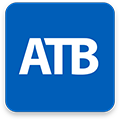You might be an entrepreneur who doesn’t have the capital to start or expand your business, so where do you look for a cash infusion to meet your goals?
There are many funding methods available, like bootstrapping and loans—find out which ones work best for your business.
A small business grant is funding offered for a specific purpose, like a project, research, development, hiring incentives or marketing. It’s a source of capital that doesn’t mean relinquishing stakes in your business or taking on more debt. Grants are applied for and awarded based on strict terms and conditions.
Where to look
There are numerous places to find grants, namely through governments, non-profits and private organizations. This is where research comes into play so you can discover the ones relevant to your business and worth your time.
Start with the federal government’s free Business Benefits Finder. Fill in the blanks of your story as the tool inquires about the type and amount of desired support, goals, business and project stages, industry and location. As of February 2024, the Business Benefits Finder has more than 1,630 support programs Canada-wide—with 215 of those specifically tagged “grants” and “Alberta.” There’s funding for newcomers, diversity in agriculture, technological innovations, security solutions and upgrading cultural spaces.
Explore small business resources from the Alberta government, including Indigenous programs, the Alberta Export Expansion Program (which helps export-ready companies access international markets) and the Canada-Alberta Job Grant (which helps Albertans access training opportunities).
Look at your municipality’s website for funding opportunities (like Edmonton, Calgary and Lethbridge).
Other places to find small business grants:
- Alberta Business Grants: full-service grant-writing agency with a database
- Alberta Innovates: government-funded agency supporting the province’s growth
- Business Link: government-funded non-profit offering the Grow Your Business Online Grant
- Pocketed: tool to filter grants
- AgPal: helps farmers and agri-businesses find relevant resources
Where to find arts and culture grants:
- Rozsa Foundation: philanthropic organization supporting Alberta arts
- Alberta Foundation for the Arts: public agency and provincial corporation of the Alberta government providing grants
- Alberta government: Cultural industry grants and funding, and arts, culture and sports grants search
- Edmonton Arts Council: non-profit supporting Edmonton arts
- Banff Centre for Arts and Creativity: arts and culture educational institution in Banff
- Alberta Music: private, non-profit, member-based association
Eligibility considerations
Many variables can impact if your business qualifies for a grant:
- Location
- Industry
- Your funding needs
- Specific purpose of money
- Business structure and stage
- Investment requirements
- Demographics
- Diversity and inclusion initiatives
- Community or economic impact
Application tips
Grant applications are time-consuming, so focus on one at a time and make your efforts worthwhile. It’s a competitive landscape, so only apply for grants that match your company’s needs. Don’t ask for 100 per cent funding or more than the grant allows—some places won’t even review your application if you do. The federal government calls that a non-starter.
“Try to get as much of your funding secured or sourced as possible before seeking government investment, and include these contacts in your application, ” Innovation Canada says. “That way, you can demonstrate how you’ve already managed to guarantee other sources of legitimate funding and that could very well increase the program’s confidence in your proposal.”
After you’ve found a relevant grant and determined your eligibility, call or meet with agencies to ask questions. Think about your networking elevator pitch and apply its brevity to your idea description. Don’t just talk about yourself—instead, focus on what your business can do for your community and beyond. How can you demonstrate that your idea is viable? How will you use the money in your business?
Write an engaging, easy-to-understand proposal (for someone unfamiliar with your business, industry or products) with data demonstrating how your project will fulfill the requirements of the grant program, whether it’s benefiting the community, economy or other initiatives.
Applicants can also use a grant writer to make the process smoother and more strategic. A skilled grant writer can bolster your application process effectively communicating your project's objectives and impact, while also ensuring adherence to grant guidelines and requirements. Leveraging their expertise and skills can increase your chances of securing funding by presenting your proposal in the most favorable light to grant-giving organizations.
Information that many grant programs ask for:
- Business description and plan
- Number of employees
- Financial statements
- Incorporation documents
- Project details, expenses, risks and economic benefits
Track the grant deadline and apply beforehand. If you get approved and the funds are dispersed, you might have to complete regular reports and on-site audits to comply with grant conditions.
Other considerations
Be wary of scams. Look closely at website names trying to imitate legitimate ones. Competition Bureau Canada says governments at any level “generally do not charge a fee for information on their programs, including grants and loans,” adding that private companies don’t play a role in the government grant approval process.
“No one can guarantee government grants or loans,” it said.
If no grants are available, discuss alternative funding options with an ATB business advisor.
